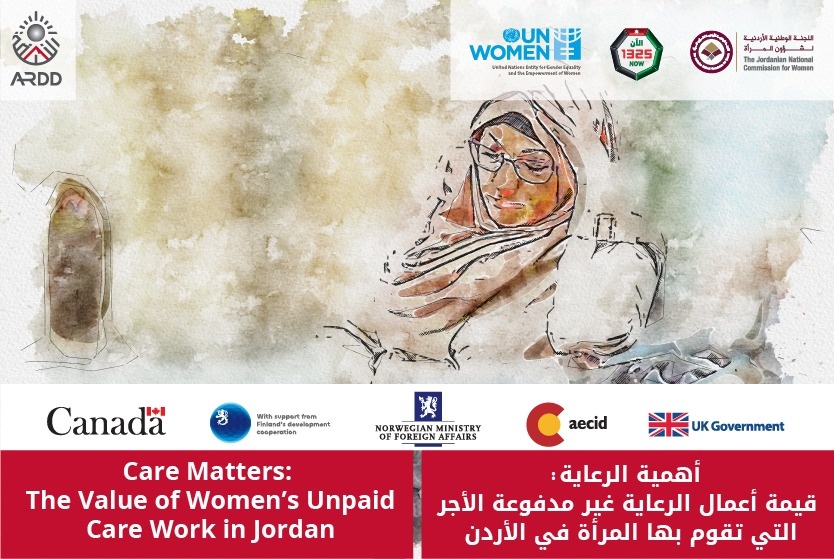Care work, defined by the International Labor Organization as “consisting of activities and relations involved in meeting the physical, psychological and emotional needs of adults and children, old and young, frail and able-bodied,” has historically and overwhelmingly been undertaken by women worldwide in their roles as wives, mothers, and daughters. Care work can either be paid—through education, health, social care, and domestic work sectors—or unpaid. Unpaid care work typically includes the direct care or supervision of persons (primarily children, persons with disabilities, the elderly, and persons with chronic illnesses), housework that facilitates the care of persons, and food shopping, among other activities. While these actions are not always viewed as “work,” the “third-person” criterion defines work as activities for which a third person could be compensated, and as such, these behaviors are considered as work.
Globally, women spend more time on unpaid care work than men; on average, they spend 2 hours and 28 minutes more on unpaid work than men per 24-hour day. In the Arab States, researchers have estimated that women perform 4.7 times more unpaid care work than men, which is the highest women-to-men ratio in the world. Specifically in Jordan, it has been calculated that the ratio of women-to-men’s time spent on unpaid care work reaches 19:1 in Jordan, the highest within the Arab States.
In economic terms, unpaid care work has been proven as a predictor in determining both whether women enter and stay in the labor force as well as the quality of jobs they accept. Moreover, research shows that there is a significant negative correlation between a country’s female employment rate and women’s average unpaid working time. In other words, women’s unpaid care work decreases as national rates of women’s employment increase and vice versa. This phenomenon is reflected in Jordan, where the female labor participation rate is 14.9 percent, and it has been estimated that 51.3 percent of Jordanian women aged 15 years or above consider domestic household work (which is considered unpaid care work) as their primary activity.
COVID-19 has exacerbated the inequalities in unpaid care work worldwide. Despite descriptions of crashing productivity in the “real economy,” women have been busier than ever, as men who are staying home due to job losses and remote work requirements have not increased their contributions to housework. Moreover, during crises such as the COVID-19 pandemic, women “may face increased pressure to substitute unpaid work for lost income, for example, taking care of an ill relative at home rather than taking them to a clinic.” Indeed, UN Women estimated that in Jordan, married women with children may have spent 18 to 24 additional hours per week on unpaid care work during the pandemic, while men have only spent 1-3 hours additional hours per week on the same activities.
As assessed by UN Women in 2020, unpaid care work has constituted a particular burden for women in Jordan despite social protection mechanisms. However, there is a lack of accurate and reliable data on care work activities undertaken by women, particularly considering the impact of COVID-19. Measuring the amount of unpaid direct and indirect care work that women perform on a daily basis is one of the strategies that feminist economists have highlighted as integral to bringing awareness to governmental institutions about the critical economic contributions of women.
To this end, this report aims to sensitize wider audiences on the impact of unpaid care work from the perspectives of women in Jordan; and explore a gender-responsive and bottom-up approach in deciding how care work can be reduced and redistributed in Jordan.
While the commodification of care work is presented as a potential solution by international experts, a women’s rights approach to unpaid care work must investigate the drivers that initially placed women in the position of the primary unpaid caregivers and the solutions that can provide women with a choice.
To this end, the transformation of social norms and legislative changes are among the two most pressing recommendations. Further research looking into the realities of women’s lives as unpaid caregivers provides the necessary foundation to enact the necessary policies toward that transformation.
This report comes as part of the action research conducted by ARDD’s Al Nahda Center within the framework of the project “Strengthening the Capacities of Women-led CSOs in Evidence-Based Advocacy and Women, Peace, and Security (WPS) Agenda” supported by UN Women with the generous funding of the governments of Canada, Finland, Norway, Spain, and the United Kingdom. ARDD would like to thank JONAF civil society partners and individuals that supported the development of this study.


